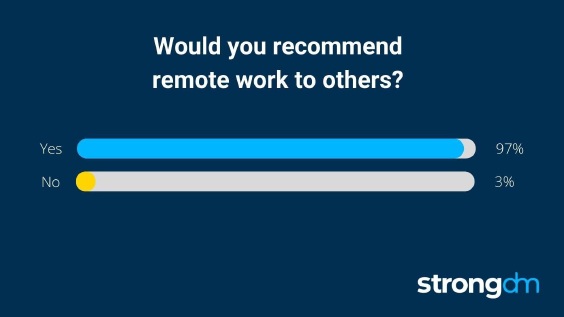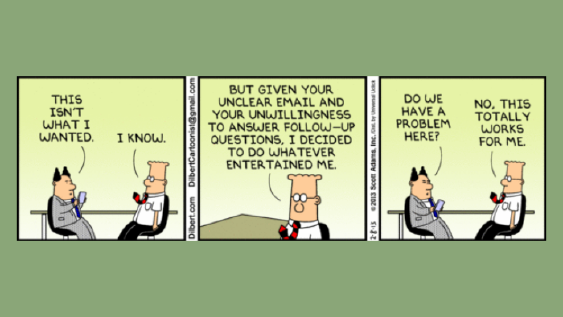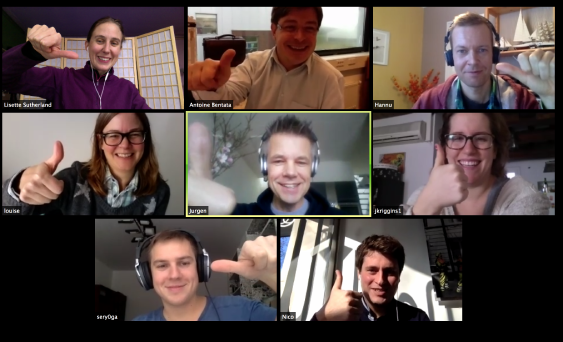|
|
|
|
|
Hello!
And thanks for opening my newsletter! 🙂
My name is Yuri. I'm a freelance web-developer and technical writer.
You can click on my image above to read up on me.
Scroll to the bottom to learn more about what I offer!
|
Who Hires Remote Workers? |
These days a surprisingly large number of companies in various knowledge work industries, including: finance, accounting, IT and marketing, hire remote workers.
Any industrious job seeker can find a few lists via Google and Github.
Here are a few articles show casing companies that hire remotely: |
| The 100 top companies that hire remote according to 'We Work Remotely' » |
| The top companies that hire remote according 'to Built In' » |
| 50 companies that hire remote according to 'Zapier' » |
The Rapidly Exploding Gig Market |
Hiring employees remotely, however, is not the full extent of the remote work gig economy.
In recent years, both the number of transactional freelance platforms and the total value of volume they transact has gone crazy! 🤓
Upwork, one of the more prominent services, in terms of total funds processed annually, claims 20% of employment is now remote!
In 2023, they processed $4.14 billion in gross services volume (GSV), which is the total value of all payments made on the platform, according to AI.
[Source: ‘Upwork Revenue and Client Stats (2024)’]
On that transactional volume, Upwork earned $689 million USD charging freelancers a ~10% fee on transactions, and fees to bid on projects, and charging the other portion of their 851,000 active clients (buyers) other administrative and transactional fees.
If that doesn't convince you of astounding growth in remote hiring since the pandemic, here's more research:
|
The Gig Economy Since the Pandemic |
| Statistics on remote workers from 'Apollo Technical' » |
| https://www.ncbi.nlm.nih.gov/pmc/articles/PMC9186428/ » |
| https://www.ncci.com/SecureDocuments/QEB/QEB_Q4_2020_RemoteWork.html » |
 | Click above to read up on remote work statistics from StrongDM |
|
Those links tell us that prior to the pandemic only 6% of the work force worked from home, while during and after the pandemic 24% of the work force worked from home!
One thing is clear: all of that remote hiring suggests there are some really good reasons to hire remotely!
|
Why Hire Remotely? |
Here are the three reasons to hire remotely, according to AI: |
| | | 1. | | Attract a broader pool of higher skilled more knowledgeable workers | | 2. | | Provide employees with more autonomy and flexibility, leading to increased job satisfaction and productivity | | 3. | | Reduce overhead costs | | |
|
Today, in the middle of the communications revolution, tech work is more and more specialized. The more specialized a field, the more effort it takes a knowledge worker to achieve proficiency and expertise.
And that means, on average, there are fewer experts and more gains from hiring them!
Intuitively then, hiring remotely to broaden the pool of skilled workers makes sense!
The further your reach, the more chance of a more appropriate fit, the lower the cost per unit of productivity.
The third bullet point above, however, is talking about fixed costs, like rent!
|
Why Should Small Businesses Hire Freelancers? |
The cost of rent brings up the question of opportunity cost. Opportunity costs in general are deceptive. It's tough to put a price on missed opportunity when you don't know which opportunities you missed.
Economists typically model opportunity cost with baseline counter-factual growth paths. For business, total revenue and net income are good metrics to use.
For a small business, then, with presumably less floor space per person (rent), the more floor space dedicated to core-business, the higher the growth.
Web development makes for a good example. A small-business person could hire an in-house web-developer, an in-house sales expert, or even an expert product developer.
In reality, most small-businesses hire in-house web developers with 1-2 years of experience.
That gives the owner a first-hand look at the website build and a sense of control over future events.
I mean hey, when your website crashes and you don't know the first thing about it, you've got to call someone and pay the price they're charging!
But that sense of control matters less when you're not selling a lot of product online. And it matters even less when you have a brochure site and/or a street-side store front.
It's worth thinking about where your business will be 10 years down the road if you hired a remote specialist to build a durable, high-quality, well-documented website in a third of the time and used the extra floor space to hire a sales expert!
Having said that, in the spirit of evidence-based decision making, keep in mind, hiring remotely does take some expertise.
|
|
Complications When Hiring Remotely |
Here's a list of common problem points when hiring remotely: |
| | | 1. | | The legal framework | | 2. | | Onboarding/establishing trust | | 3. | | Managing transactions | | 4. | | Agreeing on the scope of work | | 5. | | Communication | | 6. | | Scheduling | | |
|
While legal frameworks could be the most practical barriers to successful remote hiring, the most common barrier is probably establishing trust.
There's just something about hiring someone referred to you through someone you already know.
But the numbers tell us people are establishing trust, and in my experience Zoom is entirely up to the task. But, of course, detailed contracts and clearly defined work scopes are certainly beneficial!
Taking a little time upfront to ensure the scope of work is clearly stated and partitioned into many small milestones goes a long way toward preventing scope creep.
Small work parcels paid on completion enable the freelancer to stay up to date in terms of payment so they don't have to worry about bad debts. And the remote hirer doesn't have to pay a 50% deposit in advance of any work, which is heaven on their cash-flow!
Moreover, smaller work parcels mean more communication and more opportunities to ensure work delivered fits expectations.
|
|
 | Good communication is essential to working together remotely successfully! |
 | Click above to read what Get Lighthouse has to say about remote hiring. |
|
|
My Experience as a Freelancer! |
In my previous experience as a freelancer, there was a gargantuan difference between how the two largest companies I've worked with internationally handled their on-boarding.
One company insisted on hiring me as an employee, which meant a LOT of paper work!
I had to research employment laws in both the US and Canada, and even ended up on hold with the US tax authority for some horribly long amount of time 😆
Moreover, reviewing their contracts, signing off on their SOWs, and filling out transactional paper work was just complicated.
The other company wanted to get me working on their project as quickly as possible. They sent one legal contract. I read it, made some changes, and sent it back.
They read it, signed it, and sent me a PayPal deposit.
The scope of work we agreed on was very clear. I only had to read a few manuals and watch a few videos, and then click okay on the project milestones.
We met once a week on Zoom, and communicated mostly through Slack.
They were really good at performance feedback, and actively communicated milestone adjustments as we went along.
Moreover, they issued payments predictably and precisely, and the pay was good! 😊
Remote web development is a lot of work, anyone who's done it can relate. But companies that want to procure remotely successfully can figure it out.
As long as there are good intentions, and the details are covered, hiring remotely makes a lot of sense!
If Upwork can facilitate over 4 billion USD in remote transactions, you can hire remotely also! Just do a little research and avoid any dogmatic adherence to outdated protocols. 😊
On that note, here are four articles explaining the pros and cons of hiring freelancers vs hiring employees: |
| https://www.usemultiplier.com/blog/advantages-and-disadvantages-of-hiring-freelancers » |
| https://www.inc.com/dakota-shane/thinking-about-hiring-freelancers-know-these-7-pros-cons.html » |
| https://www.linkedin.com/pulse/hiring-freelancers-vs-full-time-employees-pros-cons-michael-weare-bbdoe » |
| https://www.usemultiplier.com/blog/freelancer-vs-employees » |
|
More About Me: |
Once again: my name is Yuri Tricys. I'm a freelancer! I built buildhello.ca and readingworldmagazine.com
I've worked at a variety of different freelancing tasks. My favorite work is technical writing and research.
My areas of expertise, ranked by proficiency, are: web development (web technology consulting), writing, economics, data analytics, and data science.
In terms of web development, I work with both Hugo, a static website generator, and WordPress, which I'm sure you've heard of.
If you haven't heard of Hugo, here are a few articles that showcase it:
|
| Websites built with Hugo » |
| Hugo Themes Repository » |
| A popular Hugo Theme! » |
You should hire me because: |
| | | 1. | | I care about my customers and I want to see them grow more quickly and enjoy their lives more | | 2. | | I'm easy to get along with | | 3. | | I'm a JavaScript expert, but I still like talking about food | | 4. | | I bill liberally, which translates to cost-effective | | 5. | | My Hugo code can save you a lot of time and money | | 6. | | My web development toolkit is elaborate and advanced, which makes me more productive | | 7. | | I have a lot of experience, which helps with crazy corner cases | | 8. | | Hiring me directly can save you freelancer platform fees and complexity | | |
|
Contact |
Give us a call, send us an email, or fill out our form!
Or click on the link to my personal profile above
|
Join Build Hello |
If you're a small business or an individual and you have a customer or acquaintance that needs a website built or maintained, just let us know, we have a referral program in place that puts extra money in your pocket.
If you sign-up for our program and we build a website for your friend or client, you get 10% for the referral or %20 for referring and managing the relationship.
At the current exchange rate, your friend or client would get a $5000 website for $3649 USD and you'd get $749 USD from that. A $2000 websites goes for $1459 USD. |
|
|





